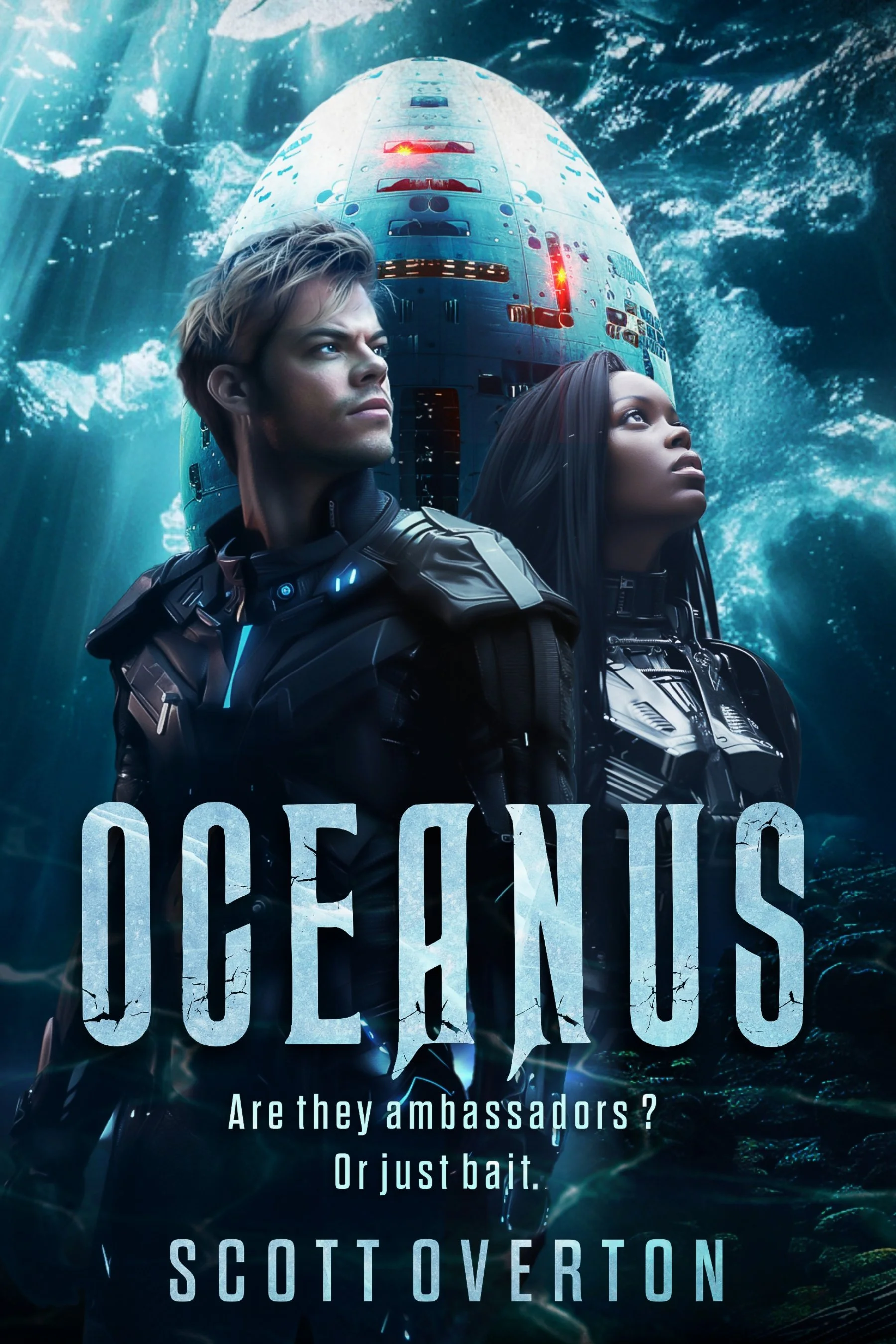A Deep Dive into Oceanus
/OK, the title of this post is mainly a pun I just couldn’t resist (the novel is largely set in a prototype habitat at the bottom of the Pacific Ocean, after all). Oceanus is my newest novel, scheduled to be published May 4, 2024. You can read a sample chapter here and it’s available to pre-order—use this Universal Book Link to find it at your favourite online bookstore. But if you want to know more about Oceanus than just the tongue-in-cheek back cover teaser, here we go.
I’m a writer who starts with a theme or concept, usually both, and builds my characters and plot to serve those. At the time I conceived Oceanus I’d written a few science fiction thrillers and was in the mood to try something more like an adventure (though the line between the two is blurry). I love scuba diving, and there are a few great SF stories that take place in the ocean depths, but not nearly enough. It was time for me to take the plunge. And as possibilities swirled in my mind, a couple of strong themes called out to be explored.
One theme was the way humans tend to dismiss intelligences other than our own. There are a lot of other smart creatures in this world, from whales and dolphins, apes to crows, and the list goes on, and we just don’t know how smart they really are because our intelligence tests don’t fit their mental processes. But I’m convinced we shouldn’t underestimate other forms of life just because they don’t think like us.
You can see this play out in Oceanus: a passenger jet is struck by a powerful blast of unknown energy over the Pacific. The energy has either come from the ocean or was aimed at the ocean, but the ‘where’ doesn’t seem as important as the ‘from whom?’ Could it have been produced by some previously unknown Earth life? Nobody thinks that’s likely, so the other strongest possibility is intelligent aliens from another world.
The first person brought into the picture is the main character, Alex Rhys, a gifted freelance troubleshooter (think MacGyver but not so gadgety), because a creative approach will be needed to save the jetliner passengers and time is running out. But as Alex stays on to investigate the phenomenon, he’s solidly on the side of believing advanced extraterrestrials have come to Earth. And Alex thinks that’s a good thing—he figures humans have screwed up our planet so badly that we need outside help to save ourselves. So, you could maybe articulate another main theme of the novel as: “Should we look to someone else to solve our problems?”
Will a visit from aliens make everything right? That’s one of several deep questions explored by the characters as they physically descend into the utter blackness and hellish pressure at the bottom of the Pacific Ocean searching for answers. Oceanus is definitely a thinking person’s action tale.
I’ve always loved SF stories that feature a team of exceptional specialists brought together to solve a crisis. In Oceanus the cast of characters includes a reluctant telepath named Elle (Alex and Elle are the ones on the Oceanus cover), an experienced Navy diver named Gary, a brilliant engineer named Lee-Anna, plus a couple of men with exotic adaptations to address physical challenges: Mattheus, a sociotheologist (I might have made that up), and Bheru, a xenobiologist.
Quite a team. In a very dramatic setting. Facing a world-threatening emergency.
SO many things I love in a science fiction story.
I hope you’ll love it too!
Get a taste of the opening of the novel here, or use this link to pre-order your copy of Oceanus.




